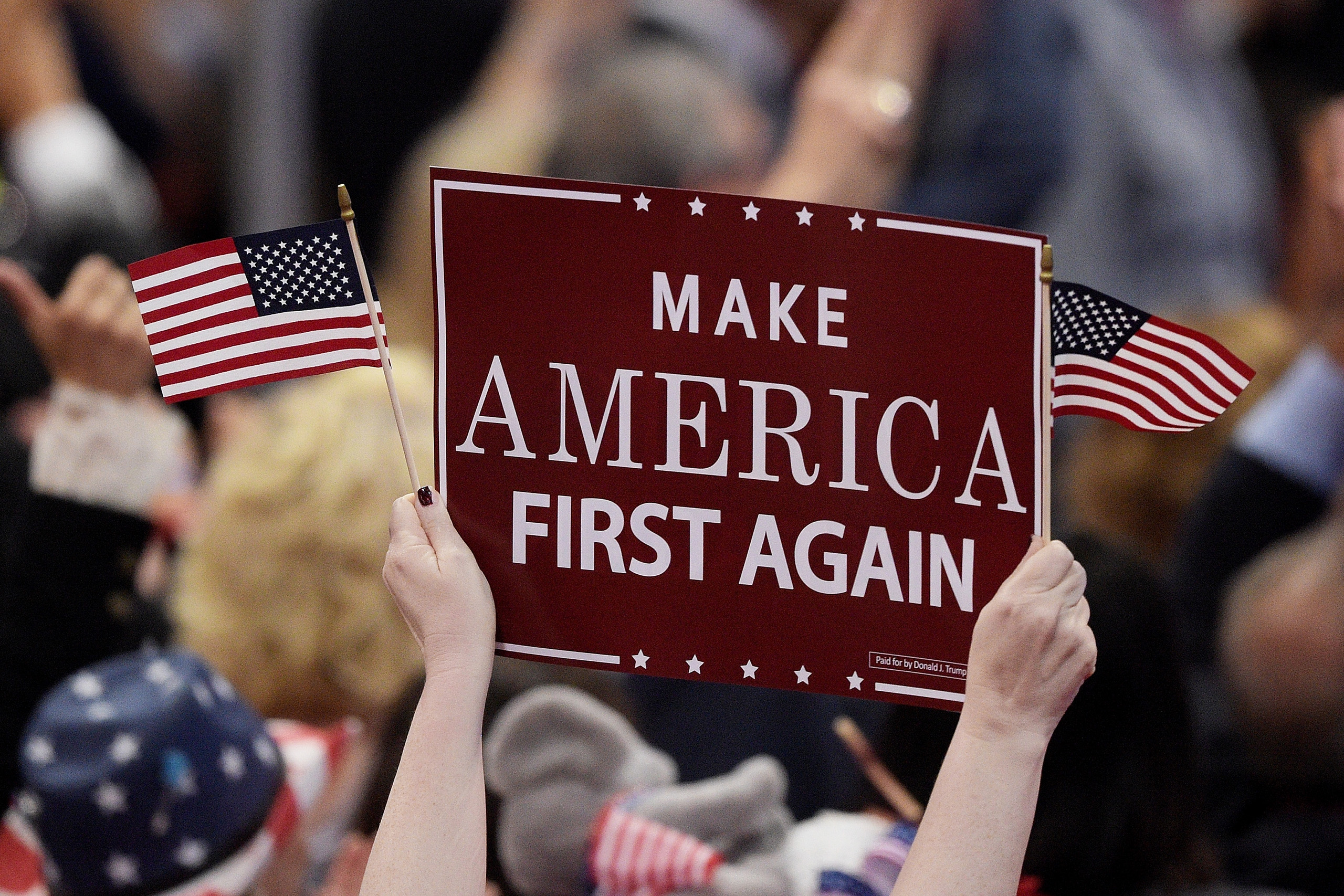For American conservative demagogues, one way to bully their critics is to keep asking this question: “What’s wrong with America First policy?” Hidden beneath this question is an implicit accusation that criticizing President Donald J. Trump’s signature “America First” policy is unpatriotic.
To be accurate, there is nothing wrong about protecting U.S. national interests. But the Trump administration lacks the knowledge of what exactly constitutes a U.S. foreign policy priority or which global engagement is essential for its interests. This erroneous notion that the world is “ripping off America” has justified Trump’s decisions to pull the U.S. out of international platforms, setting the stage for China’s leadership.
The resonant theme in Trump’s worldview that “The System,” both domestic and international, is rigged against Americans compelled the president to disengage from the world. From trade deals to climate pact, Trump thinks the U.S. is giving more than it gains. His disdain for his predecessor is an added motive to scrap most international deals the Obama administration negotiated.
What Trump seems to ignore is the fact that the current rules-based global order, mostly shaped after the WWII, is in fact designed to serve interests of Allied Powers, including the U.S. Any small change in this posture may set off unpredictable developments and shift the status quo. Such a change will enable resurgent countries like China, which is not short on money or ambition to project its power in areas vacated by the U.S.
Backing up its allies has been a bedrock policy of the U.S. diplomacy. Mixed messages by President Trump is generating alarm among allies, raising questions over the U.S. commitment to their security.
One reason why Trump was equivocal in his support for allies is because he thinks it is “charity.” His administration even considered gutting over $43 billion foreign aid, which is vital to advance U.S. interests abroad. He suggested that allies such as Saudi Arabia and South Korea should be allowed to defend themselves and not bet on America.
The strategy behind keeping America safe by shoring up allies is pretty straightforward: Instead of confronting every emerging threat around the globe, the U.S. is passing the buck by supporting its allies. America’s stabilizing role in Europe and East Asia makes sure that no peer competitor emerges as a hegemon in these regions. This longstanding U.S. policy is called offshore balancing.
The air of uncertainty over U.S. commitment to the security of allies is poised to change geopolitical alliances. Small countries will align or even bandwagon with their powerful neighbors. Saudi Arabia’s recent overture to Russia brought this geopolitical shift into glaring focus. It is telling how allies like Saudi Arabia is no longer betting on the U.S. support.
Russia and China have long worked to sow distrust between U.S. and its allies. When push comes to shove, they argued, the U.S. won’t come to their rescue. Aiding this line of argument is Trump’s rhetoric, which seems only to generate more doubt over Washington’s international commitments.
Echoing a line typically employed by small nations, Trump’s “America First” principle contradicts a central tenet of longstanding American global policy. It is significantly weakening American punches abroad.
President Trump is convinced that pulling the U.S. out of UNESCO, Paris climate deal, the global pact that upholds rights of refugees, or scrapping trade deals is “America First” in action.
No country can be more jubilant than China. As the U.S. abandons its global role, China will waste no time assuming it. From climate change to global trade, China is asserting its leadership role.
In contrast to IMF and the World Bank, China is lending money to poor countries, including U.S. adversaries such as Venezuela, with few conditions. It’s ambitious infrastructure projects seek to make Asian nations financially depend on China.
The administration’s deliberate policy of keeping the State Department understaffed and underfunded hurt U.S. interests elsewhere. Secretary Rex Tillerson is frequently undermined by the president’s tweets.
In Trump’s world, importers are losers, made possible by multilateral trade deals. He abandoned Trans-Pacific Partnership and may quit NAFTA. With a booming economy — plus stimulated by massive corporate tax cuts — these protectionist policies will likely trigger inflation, reduce domestic consumption and slow down the economy. Meanwhile, other countries will assume the leadership role in trade deals.
Trump also has a bizarre affinity with world’s worst human rights abusers. His public praise for autocrats consumes U.S. soft power and enables dictators around the world. In his words, getting along well with world leaders, including autocrats, is “not a bad thing.” The troubling part is that this not for strategic reasons, as was the case with past U.S. presidents. He admires tyrants’ toughness. He respects strongmen.
Putting moral standards aside, the current global order is what the U.S. could hope for. This is exactly the kind of world order that Russia and China are unhappy with. Trump’s dystopian worldview that the international system is rigged against American interests is misguided at best.


